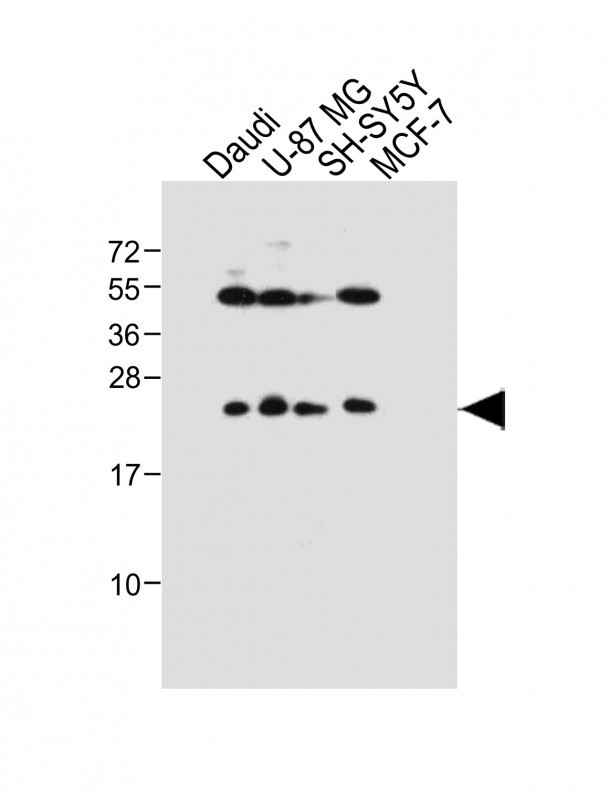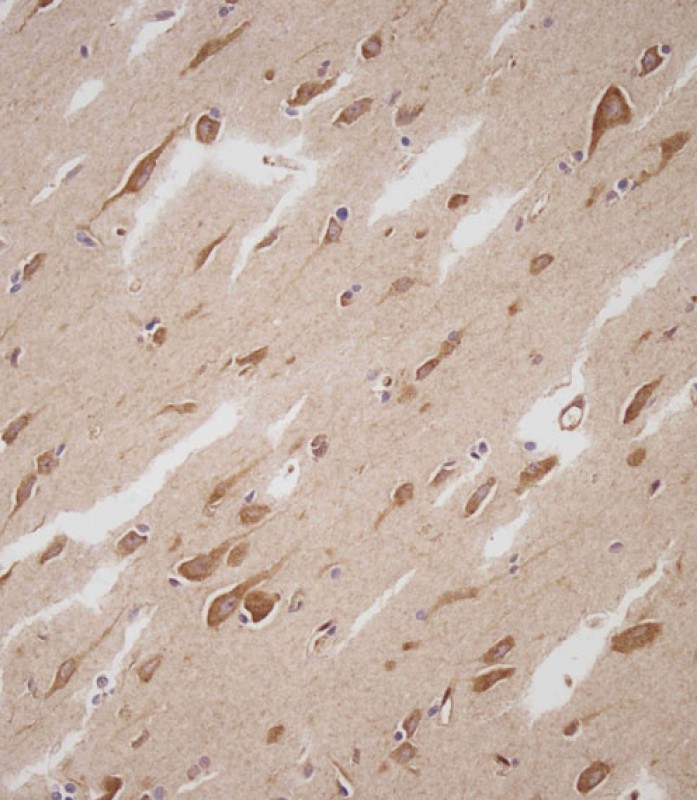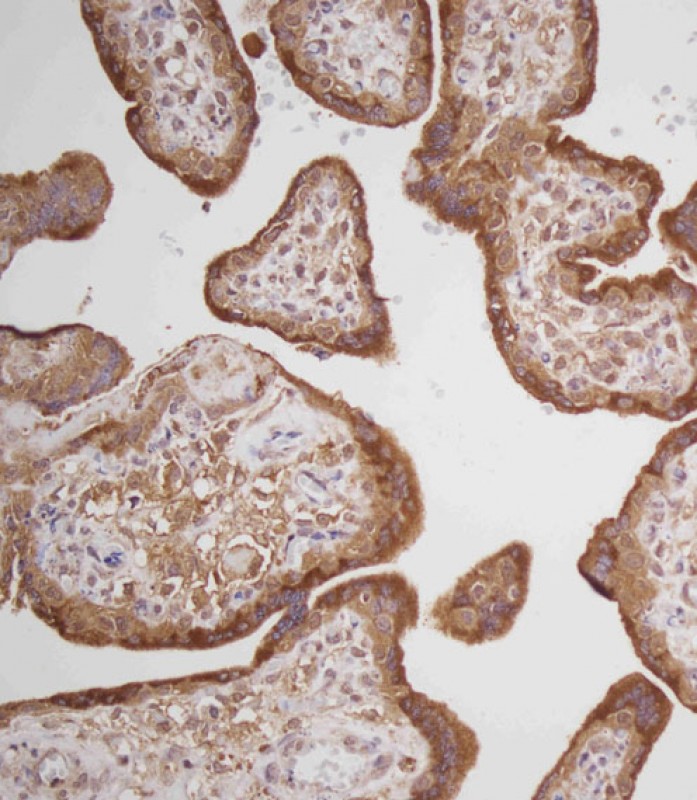


| WB | 咨询技术 | Human,Mouse,Rat |
| IF | 咨询技术 | Human,Mouse,Rat |
| IHC | 1/100 | Human,Mouse,Rat |
| ICC | 技术咨询 | Human,Mouse,Rat |
| FCM | 咨询技术 | Human,Mouse,Rat |
| Elisa | 咨询技术 | Human,Mouse,Rat |
| Aliases | Prolactin, PRL, PRL |
| Entrez GeneID | 5617 |
| WB Predicted band size | 25.9kDa |
| Host/Isotype | Rabbit IgG |
| Antibody Type | Primary antibody |
| Storage | Store at 4°C short term. Aliquot and store at -20°C long term. Avoid freeze/thaw cycles. |
| Species Reactivity | Human |
| Immunogen | This PRL antibody is generated from rabbits immunized with a KLH conjugated synthetic peptide between 48-76 amino acids from the Central region of human PRL. |
| Formulation | Purified antibody in PBS with 0.05% sodium azide. |
+ +
以下是关于PRL(催乳素)抗体的3-4篇参考文献示例,包含文献名称、作者及摘要概括:
---
1. **文献名称**:*"Development of a Monoclonal Antibody Against Human Prolactin for Immunoassay Applications"*
**作者**:Smith J, et al.
**摘要**:研究报道了一种高特异性人催乳素单克隆抗体的制备,优化了其在ELISA检测中的应用,显著提升了催乳素检测的灵敏度和准确性,适用于临床诊断和激素水平监测。
2. **文献名称**:*"Prolactin Receptor Antibodies: Characterization and Implications in Breast Cancer"*
**作者**:Lee C, et al.
**摘要**:通过功能实验分析了催乳素受体抗体的生物学特性,发现部分抗体能抑制催乳素诱导的乳腺癌细胞增殖,为靶向治疗提供了潜在策略。
3. **文献名称**:*"Cross-Reactivity of Anti-Prolactin Antibodies with Other Pituitary Hormones: A Comparative Study"*
**作者**:Garcia R, et al.
**摘要**:系统评估了抗催乳素抗体与垂体其他激素的交叉反应性,强调抗体特异性验证的必要性,以避免免疫检测中的假阳性问题。
4. **文献名称**:*"A Novel Polyclonal Antibody for Prolactin Detection in Diverse Mammalian Species"*
**作者**:Patel S, et al.
**摘要**:开发了一种广谱多克隆抗体,可跨物种检测哺乳动物催乳素,经Western blot和免疫组化验证,适用于比较医学及内分泌机制研究。
---
以上文献摘要围绕抗体开发、应用验证及疾病机制展开,涵盖了催乳素检测技术和临床研究的关键方向。如需具体文献,建议通过PubMed或Web of Science以关键词“PRL antibody”或“prolactin immunoassay”进一步检索。
Prolactin (PRL) antibodies are essential tools in studying the hormone prolactin, a 199-amino-acid protein primarily secreted by the anterior pituitary gland. PRL plays critical roles in lactation, reproductive function, metabolism, and immune regulation. Dysregulation of PRL levels is associated with conditions like hyperprolactinemia, pituitary adenomas, infertility, and autoimmune diseases. PRL antibodies are widely used in research and diagnostics to detect and quantify PRL expression in tissues or biological fluids via techniques such as immunohistochemistry (IHC), Western blotting, and ELISA.
These antibodies are typically raised in host animals (e.g., rabbits, mice) against full-length PRL or specific epitopes, resulting in monoclonal or polyclonal variants. Monoclonal antibodies offer high specificity, while polyclonal antibodies may detect diverse PRL isoforms or post-translationally modified forms. Validation includes assessing cross-reactivity with homologous hormones (e.g., growth hormone, placental lactogen) to ensure specificity. In clinical diagnostics, PRL antibodies aid in diagnosing pituitary disorders, monitoring tumor progression, or evaluating therapeutic responses. Research applications extend to exploring PRL's role in breast cancer, immune modulation, and metabolic syndromes. Recent advancements in recombinant antibody technology and epitope mapping have enhanced their precision, supporting both basic research and translational studies.
×